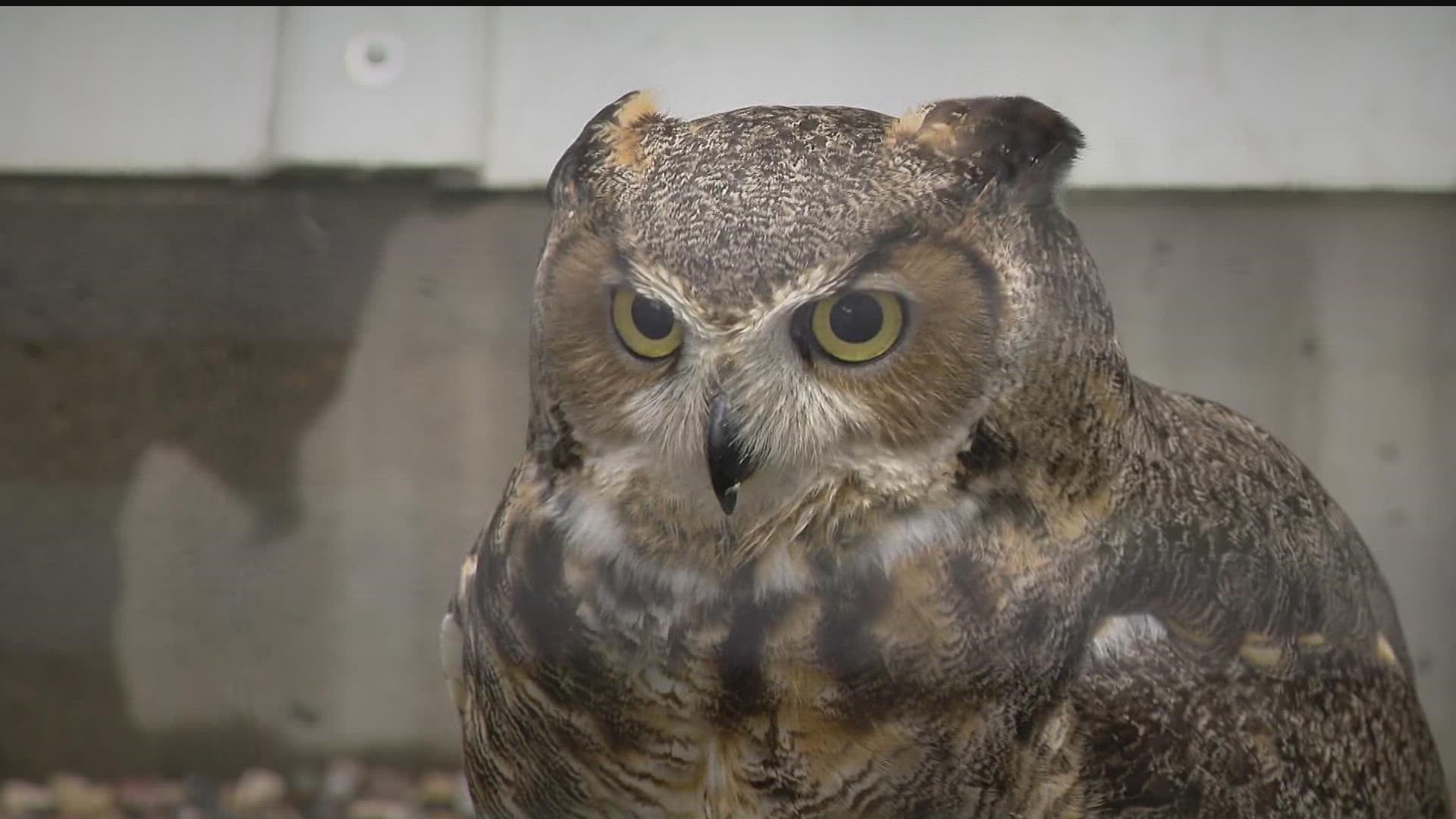ST PAUL, Minn. — Editor's note: The above video first aired on April 4, 2022.
Amid outbreaks of Highly Pathogenic Avian Influenza (HPAI), the University of Minnesota's Raptor Center is urging individuals to help mitigate its spread by taking down their bird feeders and other apparatus that birds use to congregate.
Raptor Center Executive Director Dr. Victoria Hall posted of the "unprecedented" nature of the U.S. HPAI outbreak on the center's Facebook page, and reminded the public that "all bird species are potentially susceptible to HPAI," though there is a gap of understanding in how the virus manifests in certain species over others.
Just this week Raptor Center crews responded to reports of three young great horned owls in distress at their nest near Lake Nokomis in Minneapolis. All three were transported to the center suffering from extreme neurological systems: One died suddenly, and the other two had to be euthanized. All tested positive for the avian influenza. The parental pair was found dead in the same area as the infected nest.
"Every day at The Raptor Center, we are seeing the impact of HPAI, as we triage and test birds like bald eagles and great horned owls that are intensely suffering from fatal neurological illness due to HPAI," Dr. Hall says. "With these infected birds, humane euthanasia is the only tool we have left to help them. We also know that this strain and outbreak is causing severe illness in other species like geese, ducks, blue jays, and crows."
The organization says 90-100% of birds classified as raptors will die when exposed to HPAI.
It is encouraging the public to take measures to mitigate the spread of the virus among wild bird populations in areas where it is spreading, until the outbreak has subsided "dramatically."
"During these unprecedented times, we recommend doing anything that we can to try and help our wild bird populations," Dr. Hall says. "Because the science is unclear on the role of songbirds in this current H5N1 outbreak, one consideration is to not encourage birds to gather together at places such as bird feeders or bird baths. These are places where things like viruses could easily be exchanged between individuals."
You can find more information on HPAI on The Raptor Center's website.

